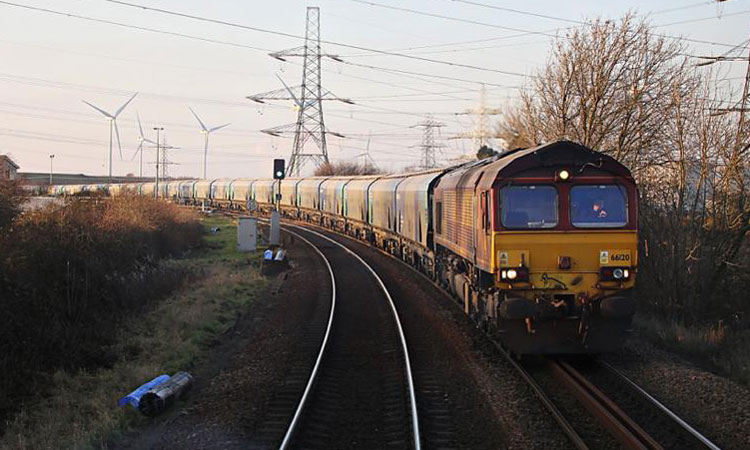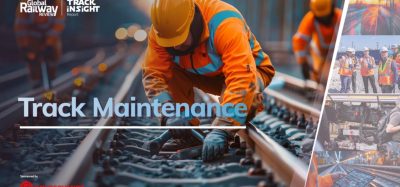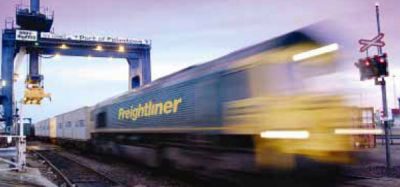UK rail freight demonstrates its true potential in the face of the pandemic
Posted: 3 February 2021 | Zoe McLernon | 1 comment
Zoe McLernon, Multimodal Policy Manager at Logistics UK, provides an overview of how the pandemic is impacting rail freight operations in the UK and how the sector is stepping up to serve the nation.


Credit: Network Rail
From social distancing rules, quarantine measures, border restrictions and the economic downturn, all modes of freight transportation have been impacted by the COVID-19 outbreak. But despite facing operational and financial difficulties, the logistics industry has stepped up to deliver for the nation, and rail freight is no exception. From launching dedicated services to transport critical supplies, running faster trains and increasing cargo capacity, rail freight has played a crucial role in keeping goods moving throughout the pandemic, and continues to do so as the UK is placed under further restrictions.
Increased freight services
Since the early days of the outbreak, rail has seen passenger numbers fall consistently owing to government guidance to ‘stay at home’, while the need for rail freight services only increased in line with consumer demand for food and other critical supplies. In response, Network Rail introduced reduced passenger timetables while allowing more freight trains to run. The organisation also partnered with DB Cargo UK and Transfesa Logistics to launch an express 72-hour rail service to transport essential hygiene, medical and food products from terminals in Valencia and Murcia to London. China-Europe rail links have also been used to transport critical supplies, including first-aid kits, masks and protective clothing. In 2020, China-Europe freight trains transported 1.13 million containers, including 9.39 million items of medical equipment, according to the National Development and Reform Commission.
…rail freight has played a crucial role in keeping goods moving throughout the pandemic, and continues to do so as the UK is placed under further restrictions.
Use of rail freight expanded across many industries and countries, particularly on the China-Europe route. With rail requiring less human interaction – it requires fewer checks – and capacity on air and sea freight services continuing to be strained by reduced services, rail has become the transportation mode of choice for many businesses looking to trade with overseas partners. China-Europe rail volumes reached 1.14m teu (twenty-foot equivalent unit) in 2020, up 56 per cent on 2019; DHL Global Forwarding reported its China-Europe rail volume in 2020 grew 94 per cent compared with 2019 levels. We expect to see this change spark a more permanent shift to use of rail – this would have both environmental and operational benefits – and we hope governments worldwide encourage the further use of rail.
Ensuring a shift to rail can be a permanent one
Logistics UK is impressed by the determination of businesses within the rail freight sector to keep goods moving across the UK during the COVID-19 outbreak; they have shown real flexibility, resilience and efficiency in the face of the pandemic. With rail freight set to play a crucial role in the nation’s economic recovery moving forwards, it is essential that freight trains continue to get the access they need on the network; we also need to see a nationwide programme of infrastructure upgrades to ensure the network is fit for purpose. Only with these measures, can the sector continue delivering for the nation.
Logistics UK
With rail freight set to play a crucial role in the nation’s economic recovery moving forwards, it is essential that freight trains continue to get the access they need on the network…
Logistics UK (formerly FTA) is one of the UK’s leading business groups, representing logistics businesses which are vital to keeping the UK trading, and more than seven million people directly employed in the making, selling and moving of goods. With COVID-19, Brexit, new technology and other disruptive forces driving change in the way goods move across borders and through the supply chain, logistics has never been more important to UK plc. Logistics UK supports, shapes and stands up for safe and efficient logistics, and is the only business group which represents the whole industry, with members from the road, rail, sea and air industries, as well as the buyers of freight services such as retailers and manufacturers whose businesses depend on the efficient movement of goods. For more information about the organisation and its work, including its ground-breaking research into the impacts of COVID-19 on the whole supply chain, please visit logistics.org.uk.


Related topics
Related organisations
DB Cargo UK, Logistics UK, Network Rail, Transfesa Logistics








Rail freight has demonstrated its true worth to the UK economy during the pandemic Zoe and we have exciting plans to build on this having now secured DfT funding to create a new inland border control facility at our depot in Barking, London, a key staging post between Europe and the UK. Watch this space!